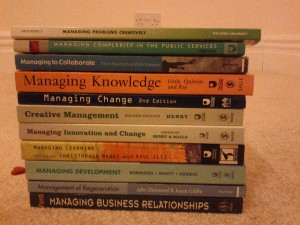Something has really been bothering me recently about ‘workplace health’ initiatives.
We seem to have got into a real mess about the PURPOSE of this type of focus.
The employer perspective is of the importance of PRODUCTIVITY and the WASTAGE caused by people being ill or off work. As a result the initiative’s success is measured in terms of sickness absence, rather than in terms of employee wellbeing as a positive condition. The questions shifts from – what can we do to enable people’s wellbeing? (the salutogenic perspective) to – what can we do to stop people being off-sick? (the pathogenic perspective). Back to the use and abuse of measurement issue – what we get is a punitive system that performance manages levels of sick leave and game playing starts – people take annual leave or use flexi time, rather than reporting a sick day. Or presenteeism – people coming to work and pretending to work even when they are not fit to be there, perhaps passing on infections to colleagues in the process. Recorded sick leave goes down, employers herald this a success, but the wellbeing of the workforce has not improved. Public health professionals are complicit in this, they make the case for workplace health initiatives in terms of the cost of days work lost.
The other thing that bugs me is that workplace health initiatives purely see the workplace as a site of health promotion or traditional public health ‘lifestyle’ interventions. We use the workplace to tell people about the importance of eating 5-a-day but then don’t give any thought to whether or not they can get affordable healthy food during their working day. We use the workplace to train people in emotional resilience – telling them they have to be resilient to stress – this means that if they go off with stress it becomes the employees fault for not being resilient enough (nothing to do with workplace stressors at all!). So in essence we are telling people to be healthy and happy (and therefore productive and not waste employer’s resources) but give very little thought to the physical, social and economic conditions in which they are doing their work.
The bottom line is – we need to re-think workplace health. Continue reading


